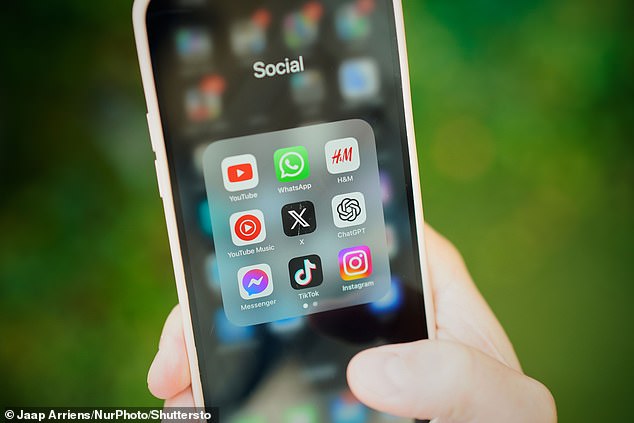Australia passes bill banning children under 16 from social media in world’s first law
Australia’s House of Representatives has passed a bill banning children under 16 from social media, leaving it to the Senate to finalize the world’s first law.
The major parties backed the bill that would make platforms including TikTok, Facebook, Snapchat, Reddit,
The legislation passed by a vote of 102 to 13. If the bill becomes law this week, the platforms will have a year to figure out how to implement the age restrictions before the penalties are imposed.
Opposition MP Dan Tehan told parliament that the government had agreed to accept amendments in the Senate that would strengthen privacy protections.
Platforms would not be able to force users to provide government-issued identity documents, including passports or driver’s licenses, nor would they be able to require digital identification through a government system.
‘Will it be perfect? No. But is any law perfect? No, it’s not. But if it helps, even if it helps in the smallest of ways, it will make a huge difference to people’s lives,” Tehan told parliament.
The bill was submitted to the Senate late Wednesday, where it will be debated at an unspecified time.
There are no exceptions if children already have an account, nor if their parents or guardians give them permission to use the sites
Support from the major parties all but guarantees that the legislation will pass in the Senate, where no party has a majority of seats.
Lawmakers who disagreed with the government or opposition were the most critical of the legislation during the debate on Tuesday and Wednesday.
Criticisms include that the legislation has been rushed through parliament without adequate scrutiny, would not work, would pose privacy risks for users of all ages and would take away the authority of parents to decide what is best for their children.
Critics also argue that the ban would isolate children, deprive them of the positive aspects of social media, drive children to the dark web, make children too young for social media and reluctant to report the harm they experience , and would remove incentives for platforms to make online spaces safer. .
Independent lawmaker Zoe Daniel said the legislation would make “no difference to the harm inherent in social media.”
“The real purpose of this legislation is not to make social media safe by design, but to give parents and voters the feeling that the government is doing something about it,” Daniel told parliament.
“There is a reason why the government is calling this legislation world-leading, and that is because no other country wants to do this,” she added.

Meta, owner of Instagram and Facebook, among others, said it will adhere to the age limit
The platforms had asked for the vote to be postponed until at least June next year, when a government-commissioned review of age assurance technologies released its report on how to enforce the ban.
Melbourne resident Wayne Holdsworth, whose 17-year-old son Mac committed suicide last year after falling victim to an online sextortion scam, described the bill as “absolutely essential for the safety of our children.”
“It’s not the only thing we have to do to protect them, because education is key, but to provide our children and parents with immediate support to cope with this is a big step,” the 65-year-old said online safety campaigner told The Associated Press on Tuesday.
“And in my opinion, this is the greatest time in the history of our country,” he added, referring to the upcoming legal reforms.
